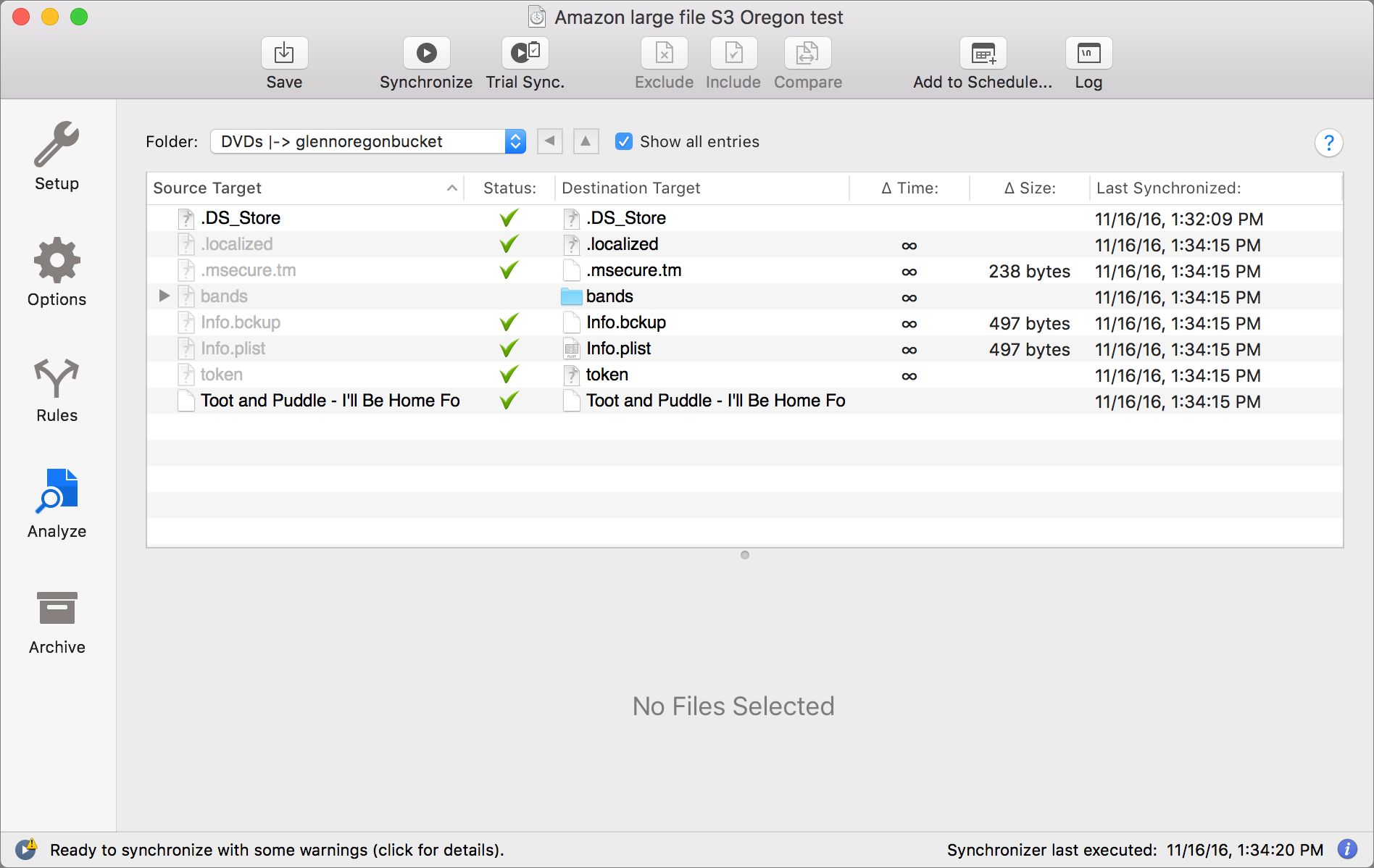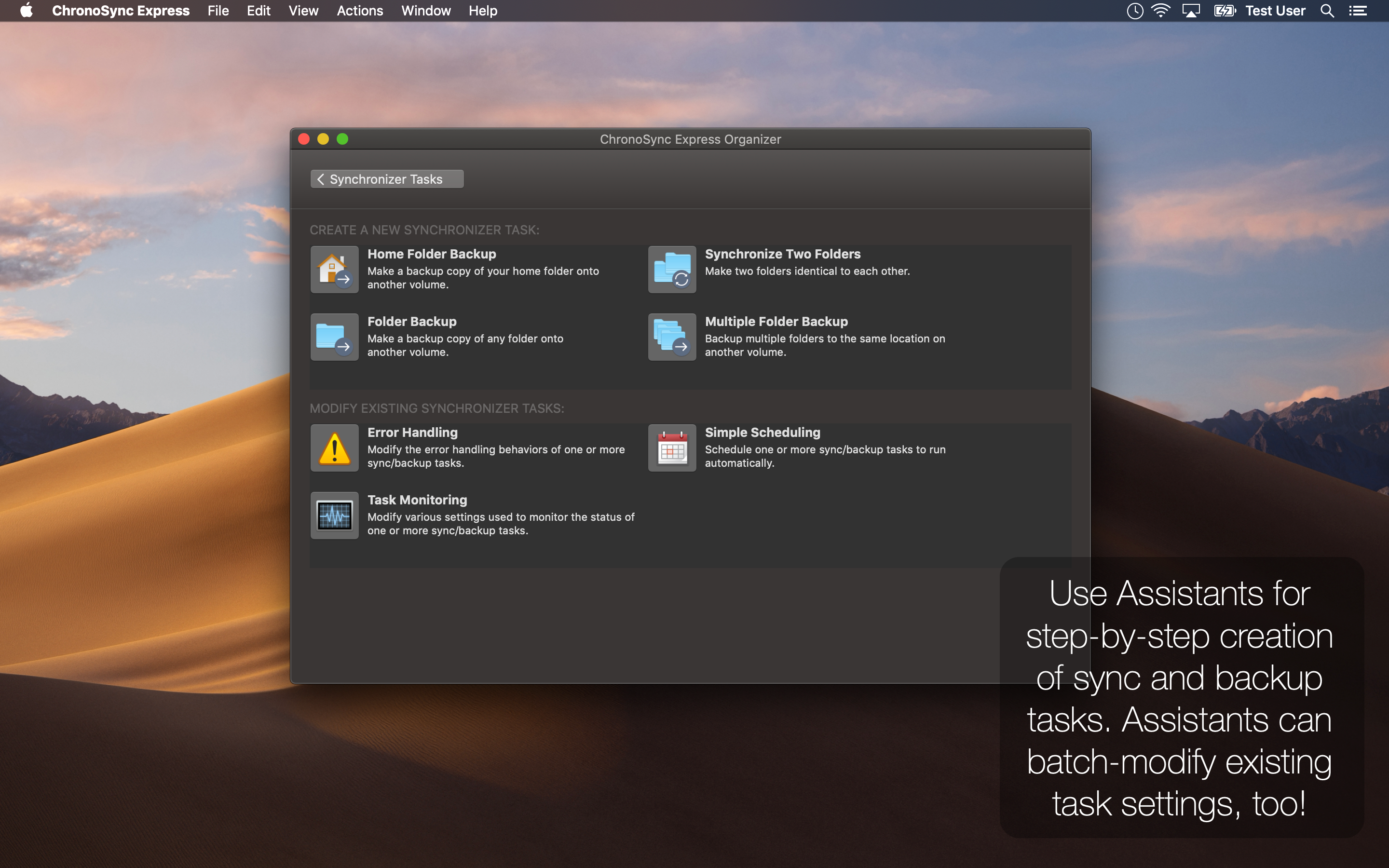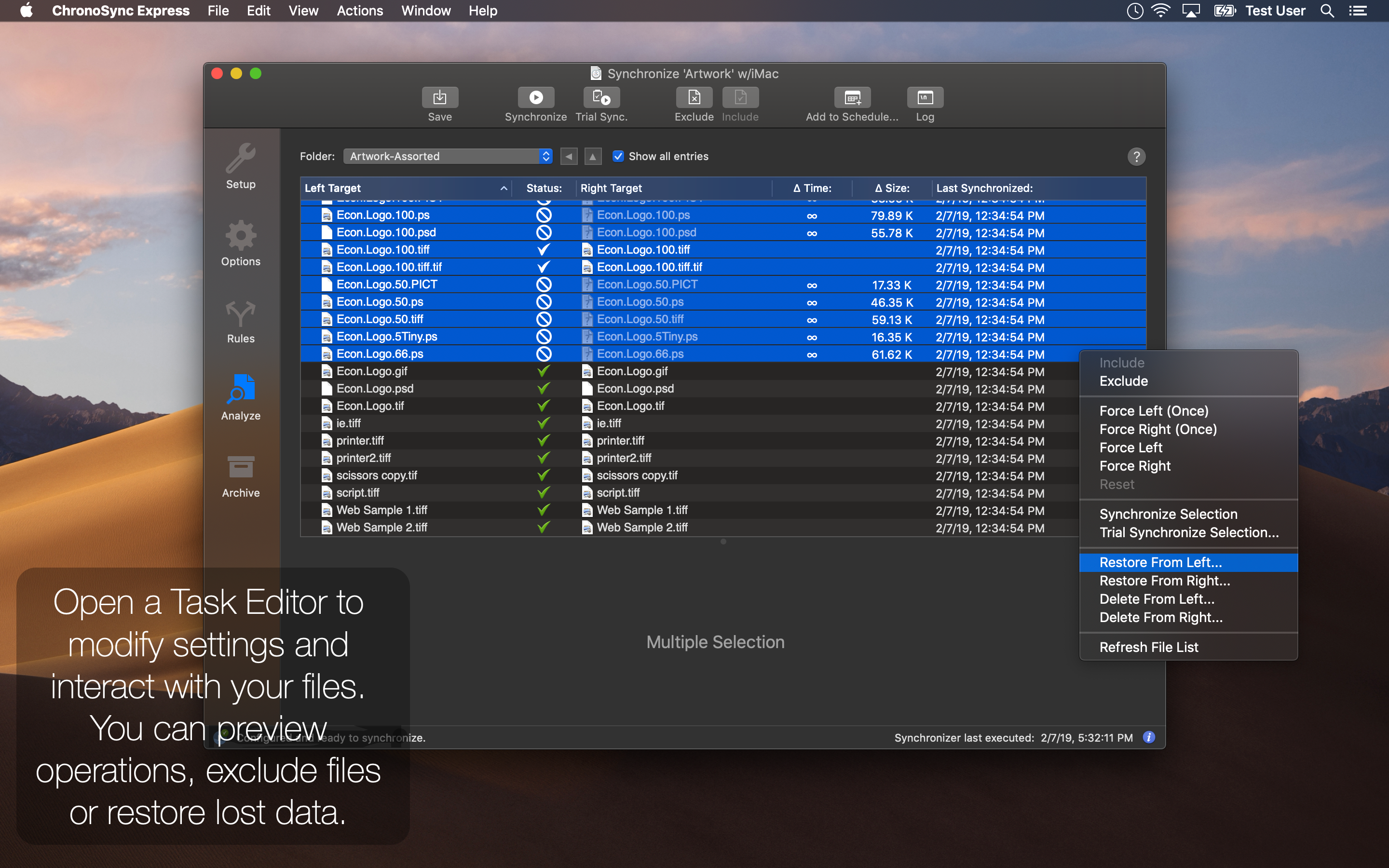

- #SYNC A FILE IN CHRONOSYNC HOW TO#
- #SYNC A FILE IN CHRONOSYNC MANUAL#
- #SYNC A FILE IN CHRONOSYNC OFFLINE#
- #SYNC A FILE IN CHRONOSYNC MAC#
It is also designed to manage FTP servers. The app can synchronize and transfer files between Macs within the same network.
#SYNC A FILE IN CHRONOSYNC MANUAL#
If you like taking a manual approach, Forklift is an excellent choice to sync your files. Synchronize the files in the user Home folder, except for data in the library folder.Check that their applications are also updated to the same version.
#SYNC A FILE IN CHRONOSYNC MAC#
#SYNC A FILE IN CHRONOSYNC OFFLINE#
However, if you want to schedule your file sync during offline hours, it would be best to use the Windows task scheduler. The app enables you to sync data with the cloud automatically.

With Google Backup and Sync, you can use your Mac to back up your local files to Google Drive seamlessly. Apps offer you several features that effectively sync your pictures, files, music, and bookmarks. If you want to sync your files and folders, then cloud-based services and apps are an excellent choice. Ideally, there are three ways you can sync your files on Mac: cloud-based services and apps, built-in sync Terminal utility, and Rsync combined with Automator.
#SYNC A FILE IN CHRONOSYNC HOW TO#
Here is a wrap-up video of how to sync files and folders on a Mac:Ĭombined with the app's analysis tab, you'll be able to save time and effort while avoiding redundant backups. Make sure to take advantage of the app's scheduling feature, which can take the headache out of manually backing up your files. With Chronosync Express, you'll be able to stay comfortably ahead of your files. The "+" button for even more insight into your files. Select a file to see where it came from, where it was headed, and whether it got there. If you're ever unsure of what a sync covered, you can click the "Analyze" tab to get a detailed record of previous syncs. You can also use the default setting, which sends desktop notifications instead. This in turn will let the app notify you by email about successful or upcoming syncs. Under the Synchronization Behavior section, the button marked "Setup" will let you enter your email information. To configure alerts, open the preferences tab. You'll also be able to set your preferences so that the app keeps you regularly updated. You can also use the checkboxes to set options for how the app will handle errors, ensuring that if something doesn't go according to plan, you'll be sure to know. You'll be able to set syncs for intervals or specific dates. To automate a monthly, daily, or weekly sync, click the "Add to Schedule" button. Whether you're more of a "set it and forget it" person or just need to be totally sure your files get backed up on time, the solution is built right in. You can also preview what the sync will do with the "Trial Sync" button. To complete the sync manually, just click the large arrow button in the middle. You can choose to back one file up to another location, or sync two files bidirectionally.

Each document lets you set the source and destination of the files you'd like to back up, as well as the direction of the sync. In the app, you can manage your backups with Synchronizer Documents. Here's how to put it to work: Setup backup and sync The Chronosync app also provides a detailed history and analysis of your backups, letting you stay ahead of the game. Plus, you'll stay up to date with your files when you enable system notifications and emails. Its synchronization documents let you select only the files you want to backup, specify their destination on a linked device, and schedule backups at recurring intervals. The app works like a routing switchboard for your files. Chronosync rejects a one-size-fits-all approach to backing up files.


 0 kommentar(er)
0 kommentar(er)
